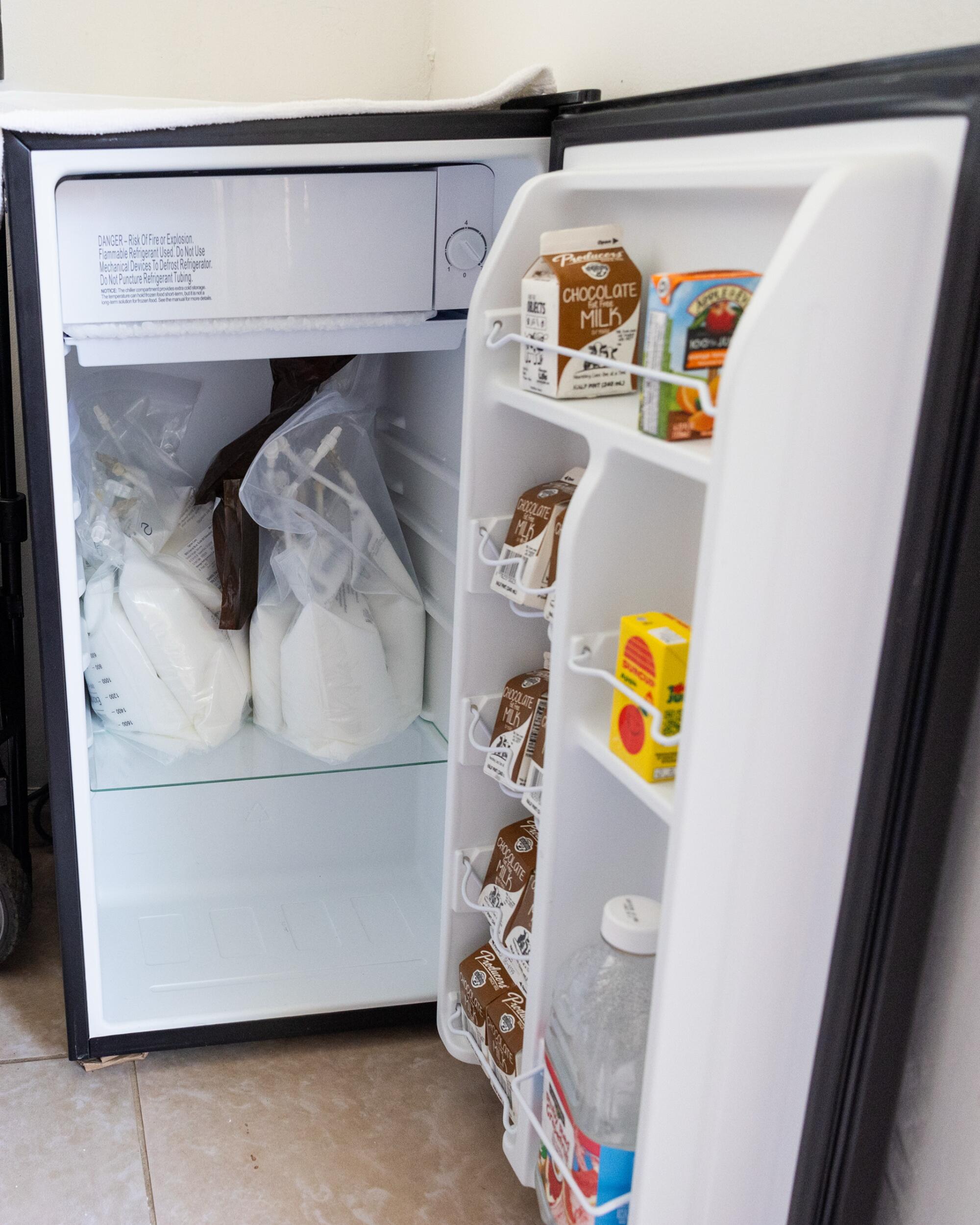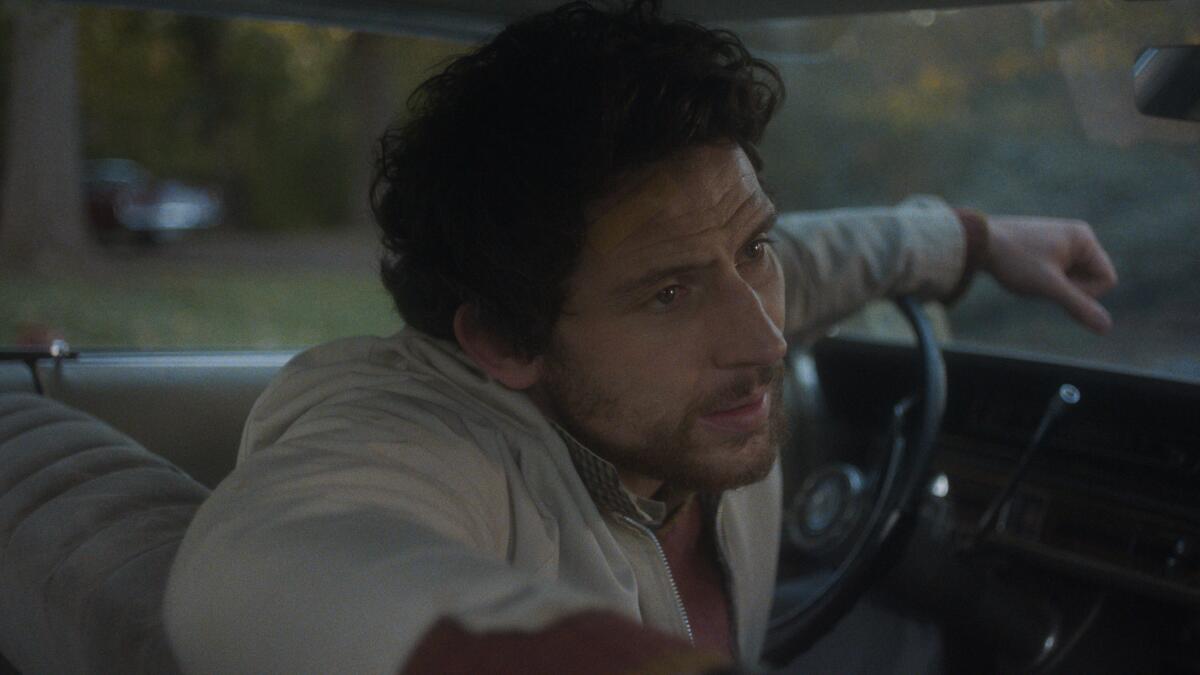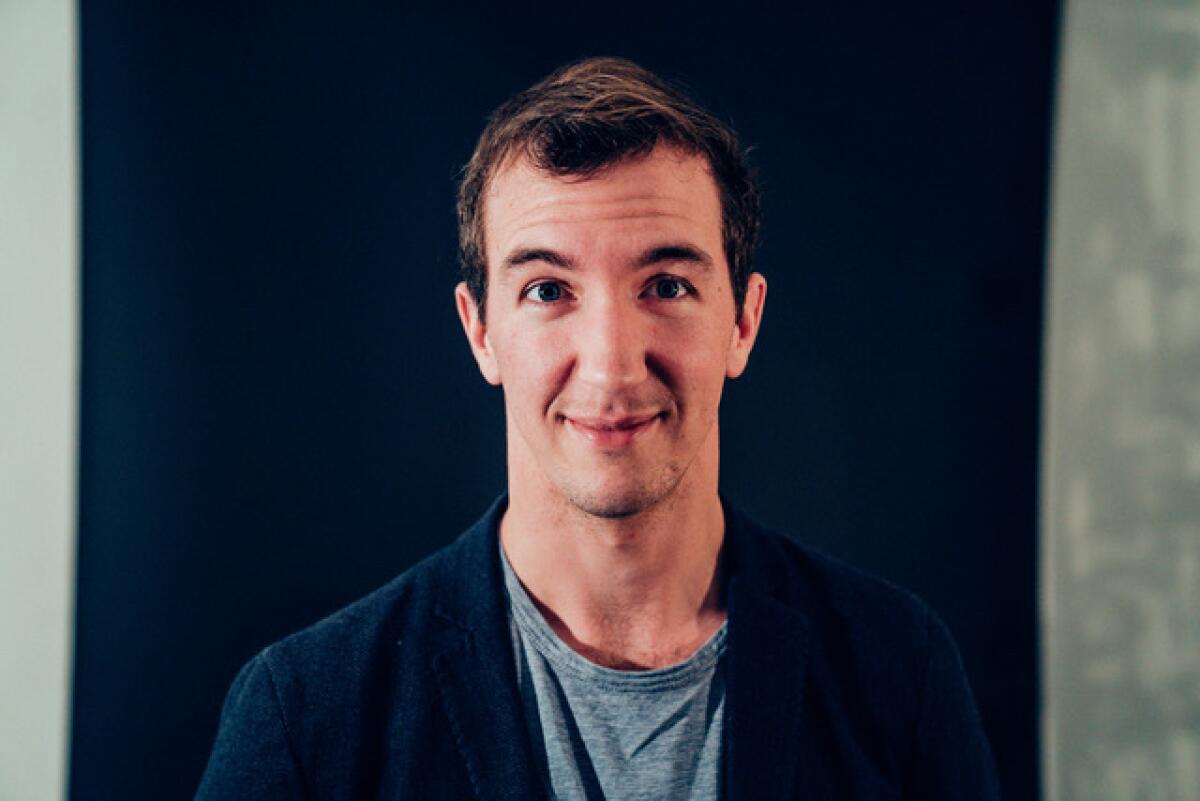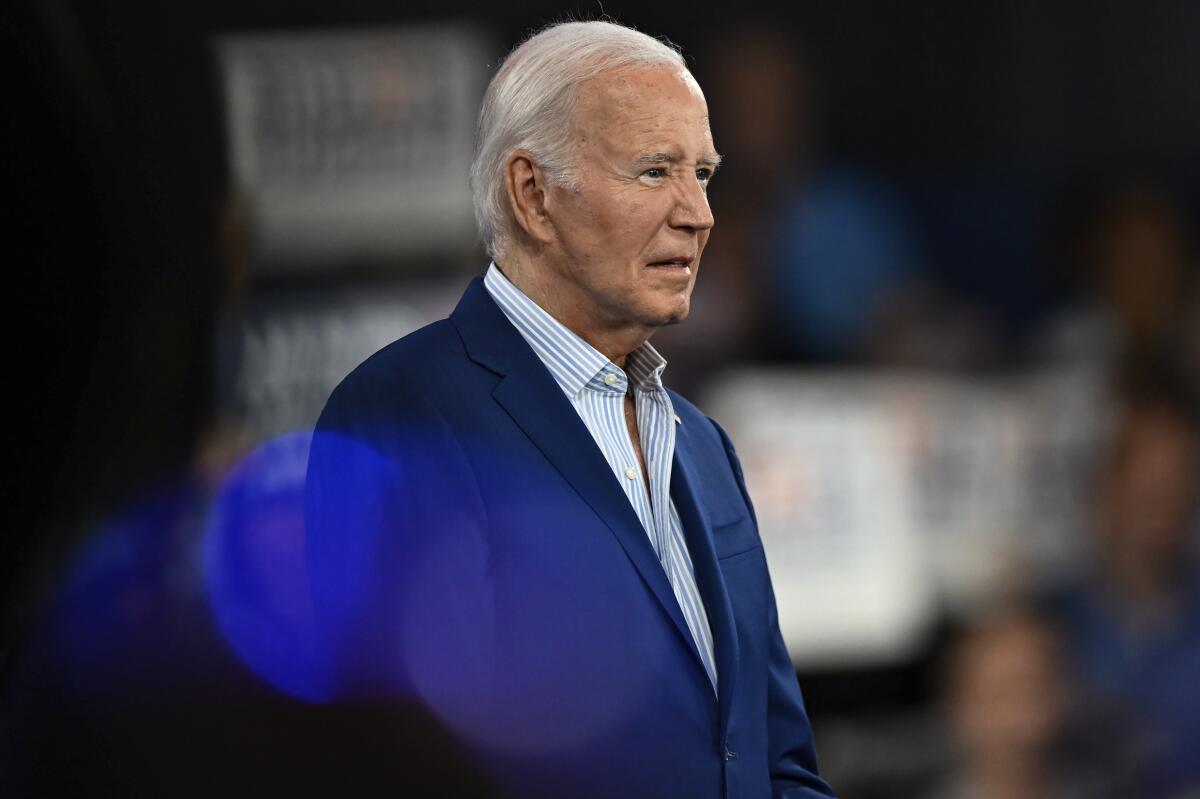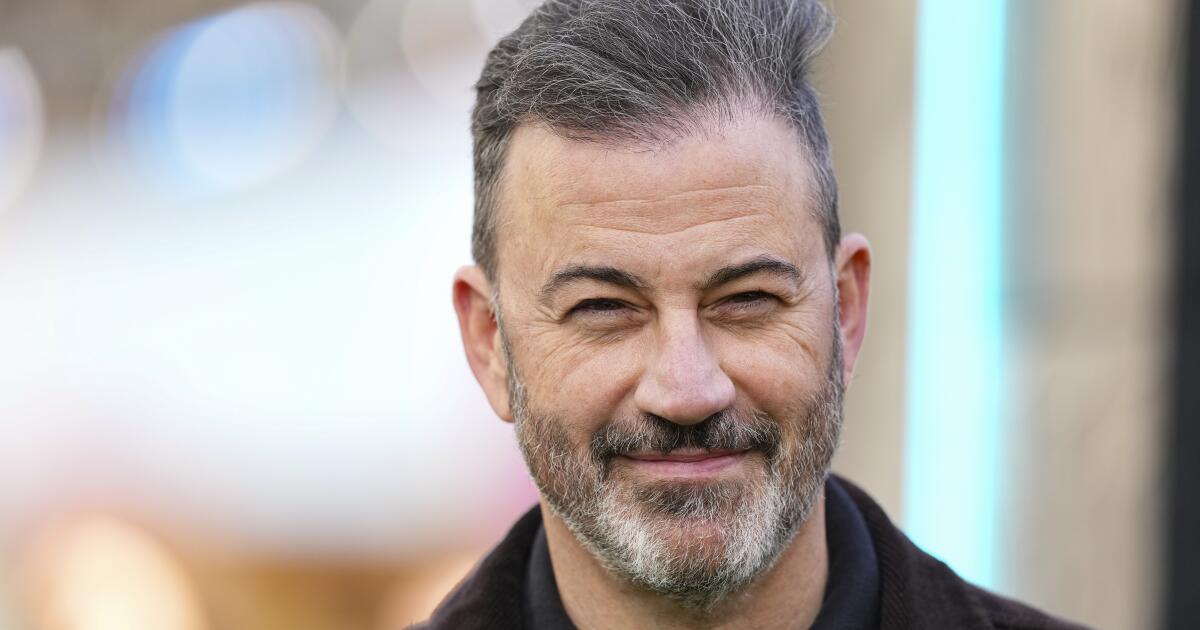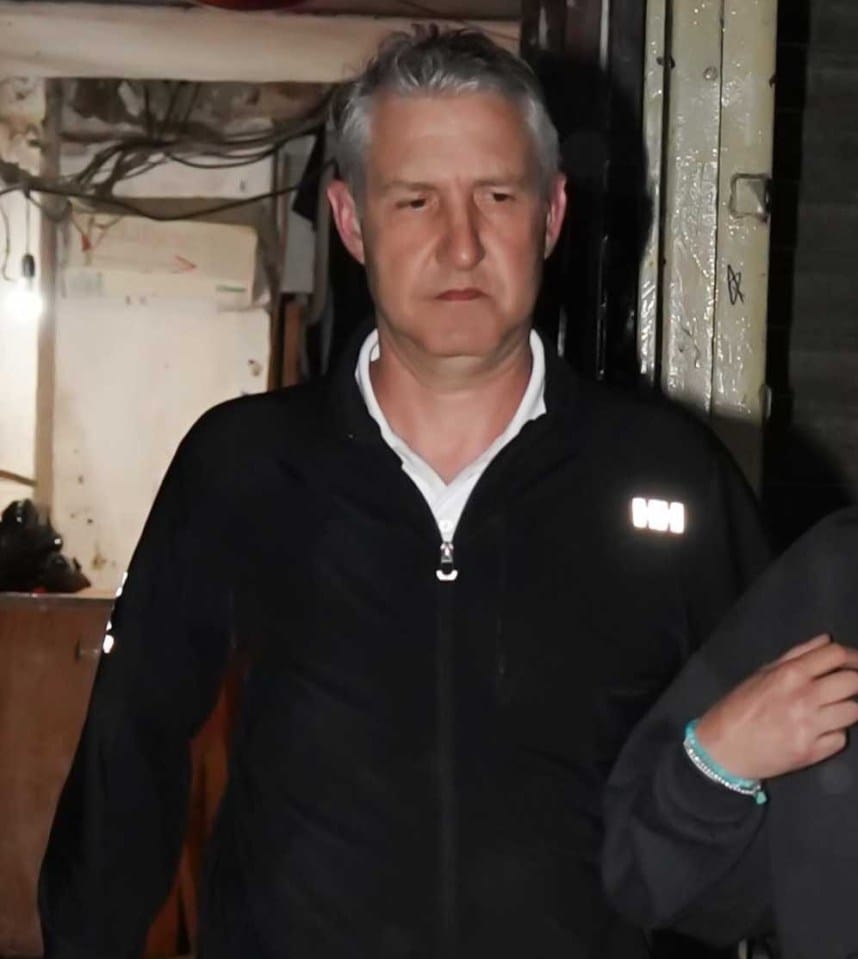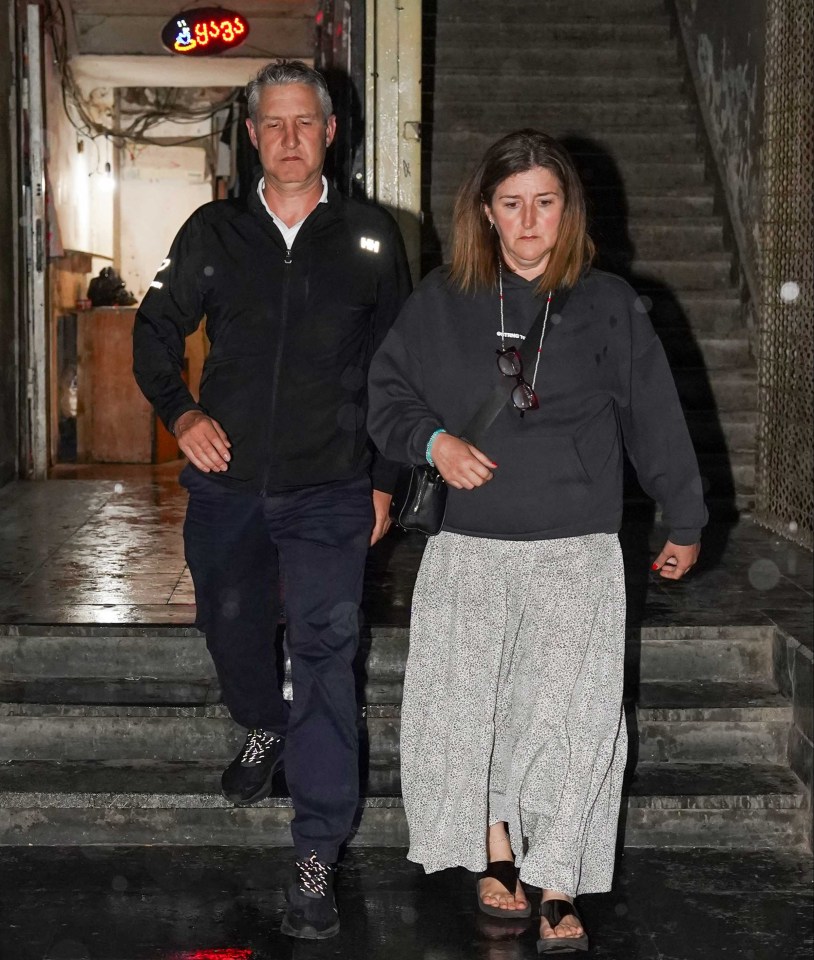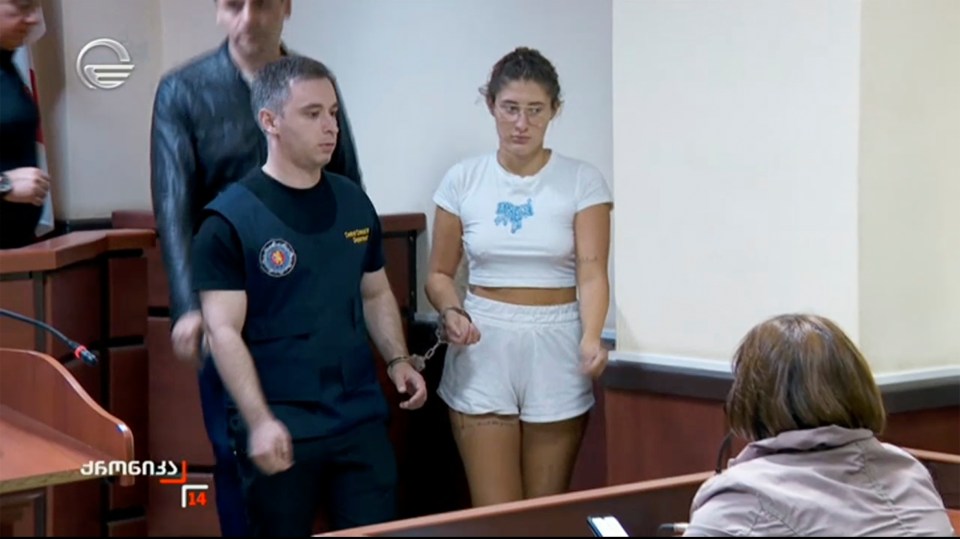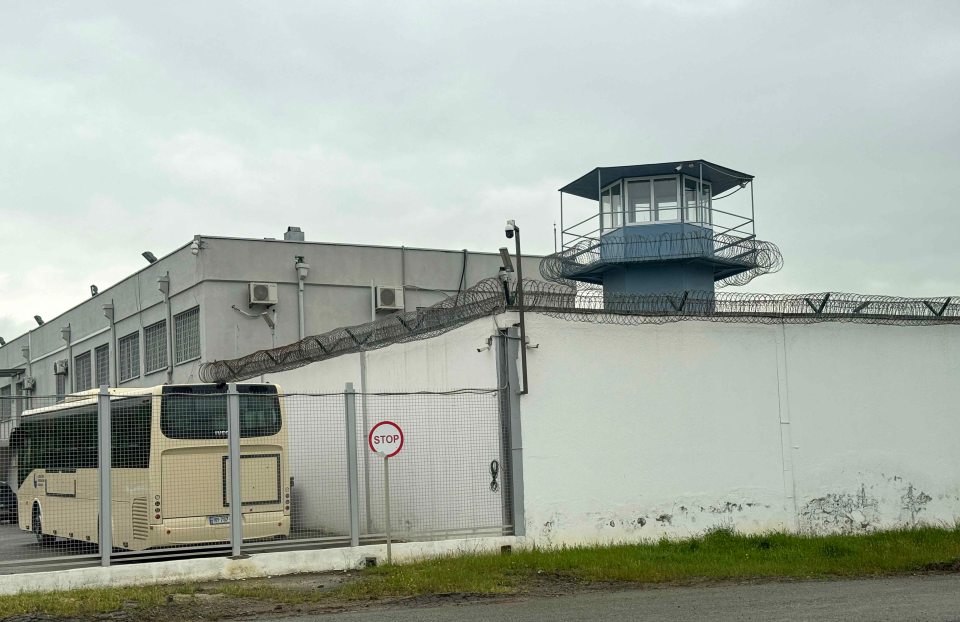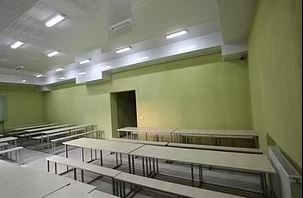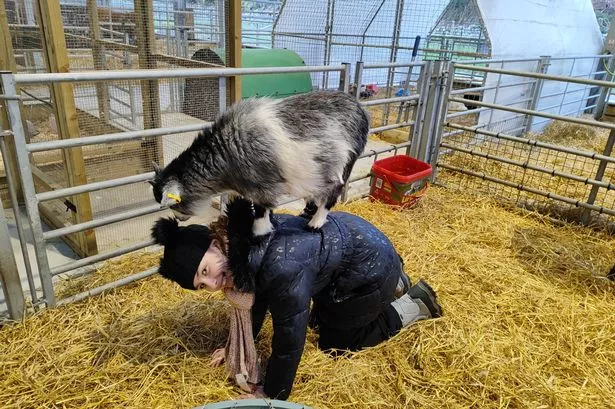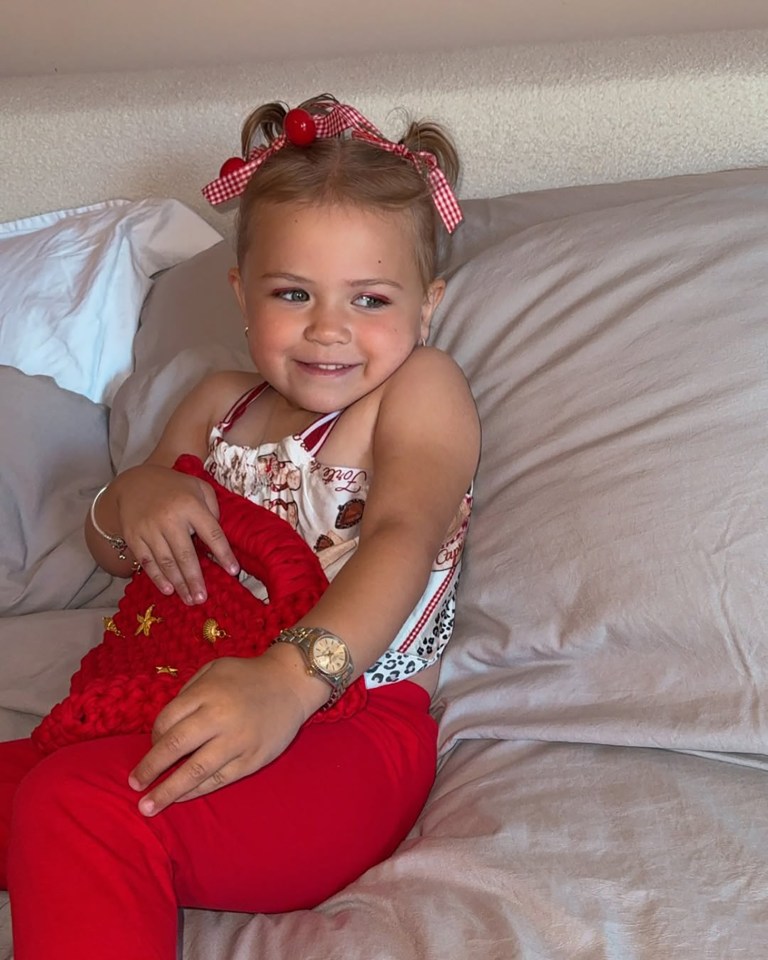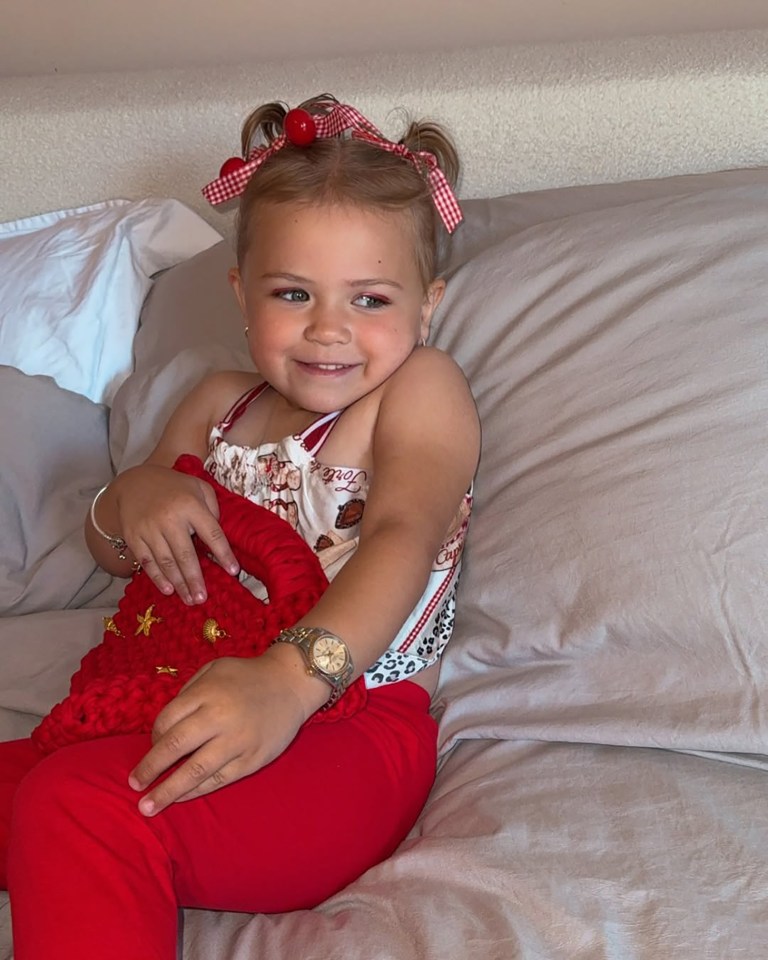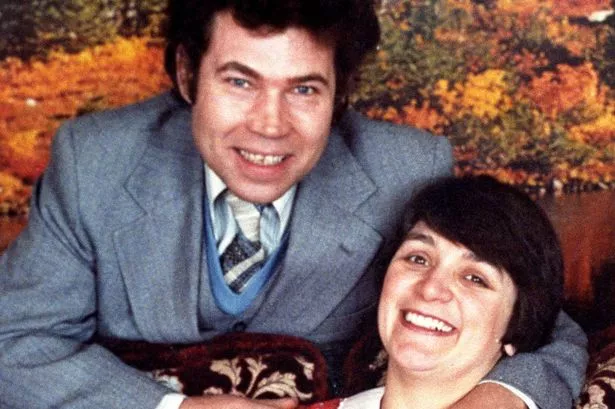4-year-old Bakersfield girl facing deportation could die within days of losing medical care
Deysi Vargas’ daughter was nearly 2½ when she took her first steps.
The girl was a year delayed because she had spent most of her short life in a hospital in Playa del Carmen, Mexico, tethered to feeding tubes 24 hours a day. She has short bowel syndrome, a rare condition that prevents her body from completely absorbing the nutrients of regular food.
Vargas and her husband were desperate to get their daughter, whom The Times is identifying by her initials, S.G.V., better medical care. In 2023, they received temporary humanitarian permission to enter the U.S. legally through Tijuana.
Now in Bakersfield, the family received notice last month that their legal status had been terminated. The letter warned them: “It is in your best interest to avoid deportation and leave the United States of your own accord.”
But doing so would put S.G.V., now a bubbly 4-year-old, at immediate risk of death.
“This is a textbook example of medical need,” said the family’s attorney, Rebecca Brown, of the pro bono legal firm Public Counsel. “This child will die and there’s no sense for that to happen. It would just be a cruel sacrifice.”
A spokesperson for U.S. Citizenship and Immigration Services declined to comment.
S.G.V.’s medication is stored in a small refrigerator.
Children’s Hospital Los Angeles, where the girl regularly receives treatment, declined to comment. But in a letter requested by the family, Dr. John Arsenault of CHLA wrote that he sees the girl every six weeks.
If there is an interruption in her daily nutrition system, called Total Parenteral Nutrition (TPN), the doctor wrote, “this could be fatal within a matter of days.”
“As such, patients on home TPN are not allowed to leave the country because the infrastructure to provide TPN or provide immediate intervention if there is a problem with IV access depends on our program’s utilization of U.S.-based healthcare resources and does not transfer across borders,” Arsenault wrote.
Vargas, 28, is from the Mexican state of Oaxaca; her husband, 34, is from Colombia. They met in Cancun, where they were working. Just before S.G.V. was born, the couple moved to nearby Playa del Carmen so her husband could work as an Uber driver.
The girl was born a month premature and quickly taken to intensive care. After doctors discovered her condition, she underwent six surgeries to fix an intestinal blockage. But Vargas said the doctors cut out too much, and the girl was left with short bowels. She experienced repeated blood infections, including one that nearly killed her.
The girl’s weight fluctuated severely. One month, she would look emaciated, her tiny limbs and bulging stomach incongruous with the family’s relative access to resources. Another month, she was as round-cheeked as any other baby.
When S.G.V. was 7 months old, a doctor suggested that the family relocate to Mexico City, where pediatric care for short bowel syndrome was the best in the country. But although her condition initially improved, the blood infections continued.
Unable to work, Vargas spent all day, every day, at the hospital with her daughter. Some days, she said, nurses would mistakenly administer the wrong medication to S.G.V. Other days, Vargas would arrive to find that her daughter had thrown up on herself overnight and no one had cleaned her up.
As part of her daily routine, Deysi Vargas runs a saline solution through her daughter’s intravenous line.
Vargas tried to keep a watchful eye over her daughter. Even so, she said a nurse once mistakenly sped up S.G.V.’s nutrition system, causing her to quickly pee it out. The girl became dehydrated and her glucose levels skyrocketed before doctors whisked her to intensive care, where her condition stabilized.
S.G.V. as a baby, taken in Mexico before treatment for short bowel syndrome.
(Deysi Vargas)
Vargas had read about children similar to her daughter going on to have normal lives in other countries. In Mexico, her daughter was being kept alive — but at 2, her condition had not improved.
So when Vargas learned that the Biden administration had begun offering migrants appointments with border agents through a phone application called CBP One, she signed up. Those let in received two-year protection from deportation and work permits.
With the appointment set for July 31, 2023, Vargas and her family set out for Tijuana two days earlier. She carefully carried her daughter out of the hospital, her nutrition bags still connected intravenously.
Her husband told agents that he had once been kidnapped by cartel members in Mexico who extorted money and threatened to kill him. They also looked at the girl, whose vulnerable condition was obvious.
“God knew she needed better treatment,” Vargas said. “When we got to the entrance, they saw her and asked us if we needed medical help.”
By that afternoon, the family had been whisked to Rady Children’s Hospital-San Diego.
S.G.V. quickly improved. Although she once was hooked up 24 hours a day to the feeding system that delivered nutrients directly into the bloodstream, doctors began weaning her off as her intestines got stronger.
The Trump administration has revoked the family’s humanitarian parole that they received in 2023 to treat the 4-year-old girl’s short bowel syndrome. Doctors say she could die within days without treatment.
A year later, doctors referred her to Children’s Hospital Los Angeles, which has one of the top-ranked gastroenterology programs in the country.
Both of her parents worked, holding down odd jobs, and by September 2024, the family had settled in Bakersfield and S.G.V. was discharged from the hospital.
For the first time, S.G.V. experienced the outside world. At Walmart, her eyes widened from the shopping cart and she and her mom strolled the aisles.
“It was incredible,” Vargas said. “I had waited so long for doctors to tell me, ‘Ma’am, your daughter is OK now. She can go home.’”
Now, the girl spends 14 hours each night hooked up to the intravenous feeding system. She wears a backpack to take it on the go.
Four times a day, for an hour, her mom administers a different type of nutrition that goes straight into her stomach through a gastric tube. When the girl goes to preschool, she takes a larger backpack containing the milky fluid, and the school nurse administers her noon feeding.
Before S.G.V. takes a shower, Vargas unplugs her IV tubes, flushes them with saline and tapes a plastic sheet over her chest to keep water from getting in and infecting the area.
On a recent morning, Vargas dressed the girl in pink leggings, a Hello Kitty T-shirt and black Puma sneakers. As they left hand-in-hand for preschool, S.G.V.’s curly black hair was still wet and the adult-size backpack dangled behind her knees as she walked.
S.G.V.’s care is covered through Medi-Cal. But life in the U.S. isn’t cheap.
Their modest living room contains little more than a hot plate on a folding table, a mini-fridge, a single chair and an IV bag stand. With no full kitchen, Vargas mostly makes sandwiches or soups. The fridge is filled with S.G.V.’s nutrition packs.
Vargas recently found steady work cleaning a restaurant. Finally, she thought, the family was achieving a sense of stability.
Then in April she received the notice from immigration authorities. This month, she received a notice terminating her employment authorization.
Vargas said she and her husband sometimes eat just once a day after paying rent and utilities, as well as for diapers and other necessities. Her husband is currently unemployed because of an injury, and she fears that losing her income could leave them homeless.
The thought of being forced by immigration agents to return to Mexico terrifies Vargas.
“I know the treatment they have there for her is not adequate, because we already lived it,” she said. “Those were bad times. Here she is living the most normal life possible.”
If not for her daughter’s medical condition, Vargas said, they probably would still be in Mexico. They want to stay only for as long as the girl needs treatment. Exactly how long that could be is unclear, but the couple are hopeful that their child’s condition will improve enough that she stops requiring supplemental nutrition.
Brown, their lawyer, submitted a petition for a continuation of their temporary humanitarian legal status based on S.G.V.’s medical condition. She believes the family’s legal status was prematurely terminated by mistake.
President Trump lambasted Biden over his broad expansion of programs allowing humanitarian entry, known as parole. On his first day in office, Trump issued an executive order to ensure that the discretionary authority be “exercised on only a case-by-case basis” for urgent humanitarian reasons or a significant public benefit.
Deysi Vargas and her daughter, S.G.V., walk about 15 minutes to the child’s preschool.
“This is the intended purpose — to help the most vulnerable who need attention here,” Brown said. “We can avoid having harmed the child and the family.”
Although Trump said on the campaign trail that he would target criminals for deportation, his administration quickly began revoking the legal status of immigrants who have no criminal history.
The Trump administration has stripped humanitarian protections from hundreds of thousands of immigrants who entered the U.S. under various Biden-era programs. Thousands of people who similarly entered the country using the CBP One app received notices from the federal government around the same time Vargas did, ordering them to leave voluntarily or face criminal prosecution and other legal actions.
The same phone app that Vargas used to enter the country has since been turned into CBP Home, to help immigrants such as her self-deport. If not, it says, “the federal government will find you.”
Times staff photographer Myung J. Chun in Bakersfield contributed to this report.
